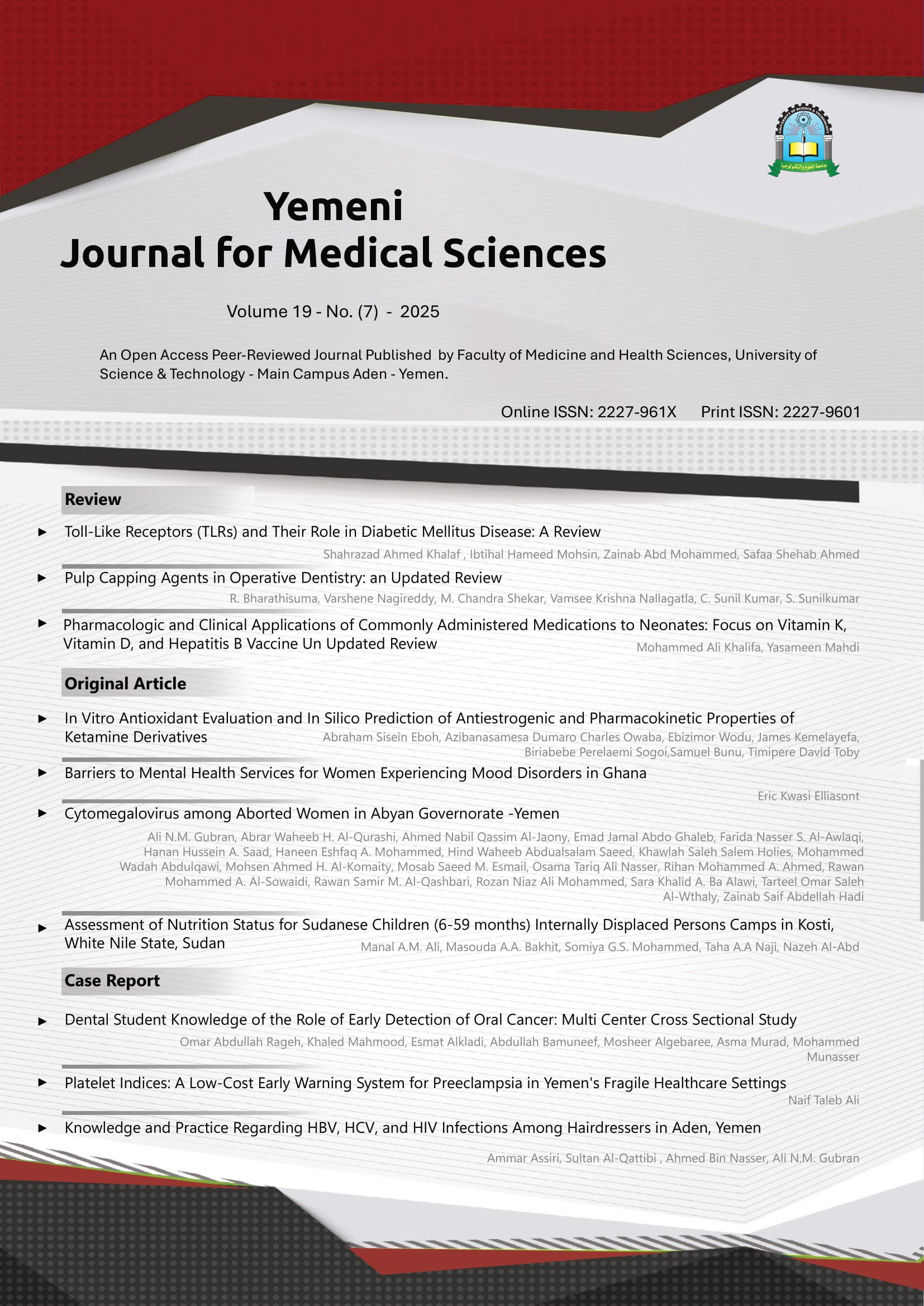Toll-Like Receptors (TLRs) and Their Role in Diabetic Mellitus Disease: A Review
##plugins.themes.bootstrap3.article.main##
Abstract
Background: Toll-like receptors (TLRs), which are an integral component of the innate immune system, have been identified as a key player in this inflammatory process. Toll-Like Receptors appeared as important elements in early defending against infectious diseases. These receptors are responsible for the promotion of antigen-presenting cell (APC) activation, e.g. dendritic cells and macrophages, thereby improving adaptive immune responses by T-cell activation promotion as well as improving B cell response.
Objective: This study aimed to explore association between TLRs and diabetes development and progression, and find their role in diabetes development and progression and the possible treatment implications.
Method: This study reviewed previous studies on TLRs and their relationship to DM, as this study reviewed 71 studies.
Results: TLRs play essential roles in both types of DM (Type I and Type II) via contribution to insulin resistance and inflammations. The inflammatory environment which aggravates β-cell dysfunctions and insulin resistance can be promoted by specific TLRs activation, e.g. TLR-2, TLR-4 and TLR-9.
Conclusion: New treatment strategies may be provided to treat DM through targeting such receptors. It is recommended to investigate how TLR activation in pancreatic islets triggers immune cell infiltration (e.g., macrophages, dendritic cells), and to study TLR4 inhibitors (e.g., TAK-242) in T2DM models.
##plugins.themes.bootstrap3.article.details##

This work is licensed under a Creative Commons Attribution 4.0 International License.
YJMS publishes Open Access articles under the Creative Commons Attribution (CC BY) license. If author(s) submit their manuscript for consideration by YJMS, they agree to have the CC BY license applied to their work, which means that it may be reused in any form provided that the author(s) and the journal are properly cited. Under this license, author(s) also preserve the right of reusing the content of their manuscript provided that they cite the YJMS.








